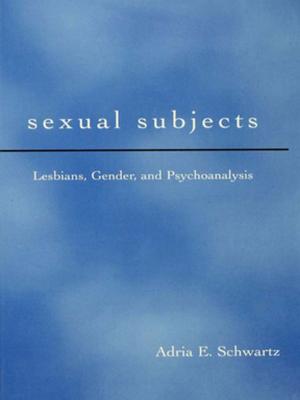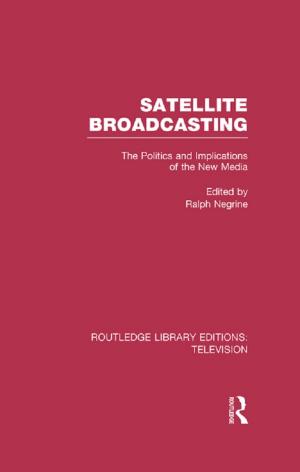Critical English for Academic Purposes
Theory, Politics, and Practice
Nonfiction, Reference & Language, Education & Teaching, Educational Theory, Bilingual Education, Teaching| Author: | Sarah Benesch | ISBN: | 9781135663544 |
| Publisher: | Taylor and Francis | Publication: | March 1, 2001 |
| Imprint: | Routledge | Language: | English |
| Author: | Sarah Benesch |
| ISBN: | 9781135663544 |
| Publisher: | Taylor and Francis |
| Publication: | March 1, 2001 |
| Imprint: | Routledge |
| Language: | English |
Critical English for Academic Purposes: Theory, Politics, and Practice is the first book to combine the theory and practice of two fields: English for academic purposes and critical pedagogy. English for academic purposes (EAP) grounds English language teaching in the cognitive and linguistic demands of academic situations, tailoring instruction to specific rather than general purposes. Critical pedagogy acknowledges students' and teachers' subject-positions, that is, their class, race, gender, and ethnicity, and encourages them to question the status quo. Critical English for academic purposes engages students in the types of activities they are asked to carry out in academic classes while inviting them to question and, in some cases, transform those activities, as well as the conditions from which they arose. It takes into account the real challenges non-native speakers of English face in their discipline-specific classes while viewing students as active participants who can help shape academic goals and assignments.
Critical English for Academic Purposes: Theory, Politics, and Practice:
* relates English for academic purposes and critical pedagogy, revealing and problematizing the assumptions of both fields,
* provides theoretical and practical responses to academic syllabi and other institutional demands to show that teachers can both meet target demands and take students' subjectivities into account in a climate of negotiation and possibility,
* offers "rights analysis" as a critical counterpart to needs analysis,
* discusses the politics of "coverage" in lecture classes and proposes alternatives, and
* features teaching examples that address balancing the curriculum for gender; building community in an EAP class of students from diverse economic and social backgrounds; students' rights; and organizing students to change unfavorable conditions.
This book is intended for undergraduate and graduate courses for preservice and in-service ESL and EAP teachers. It is also a professional book for those interested in critical approaches to teaching and EAP.
Critical English for Academic Purposes: Theory, Politics, and Practice is the first book to combine the theory and practice of two fields: English for academic purposes and critical pedagogy. English for academic purposes (EAP) grounds English language teaching in the cognitive and linguistic demands of academic situations, tailoring instruction to specific rather than general purposes. Critical pedagogy acknowledges students' and teachers' subject-positions, that is, their class, race, gender, and ethnicity, and encourages them to question the status quo. Critical English for academic purposes engages students in the types of activities they are asked to carry out in academic classes while inviting them to question and, in some cases, transform those activities, as well as the conditions from which they arose. It takes into account the real challenges non-native speakers of English face in their discipline-specific classes while viewing students as active participants who can help shape academic goals and assignments.
Critical English for Academic Purposes: Theory, Politics, and Practice:
* relates English for academic purposes and critical pedagogy, revealing and problematizing the assumptions of both fields,
* provides theoretical and practical responses to academic syllabi and other institutional demands to show that teachers can both meet target demands and take students' subjectivities into account in a climate of negotiation and possibility,
* offers "rights analysis" as a critical counterpart to needs analysis,
* discusses the politics of "coverage" in lecture classes and proposes alternatives, and
* features teaching examples that address balancing the curriculum for gender; building community in an EAP class of students from diverse economic and social backgrounds; students' rights; and organizing students to change unfavorable conditions.
This book is intended for undergraduate and graduate courses for preservice and in-service ESL and EAP teachers. It is also a professional book for those interested in critical approaches to teaching and EAP.















